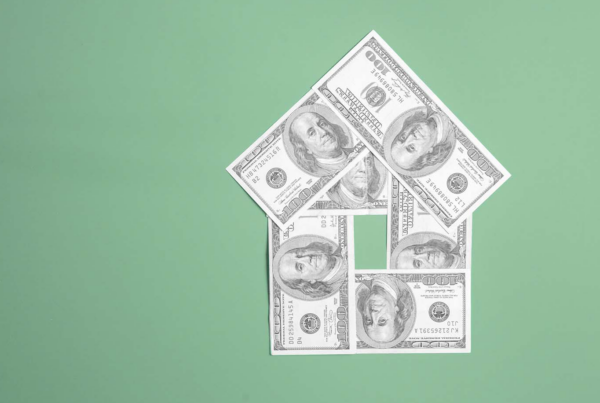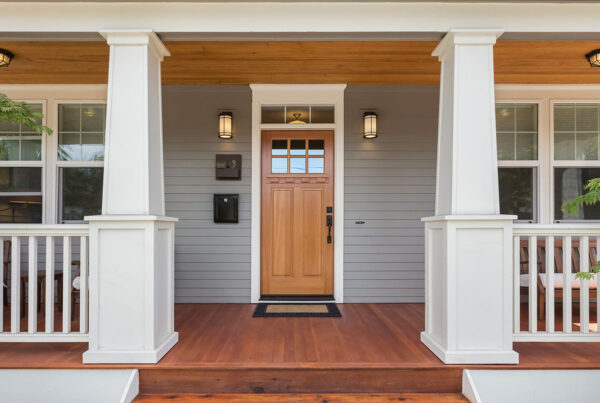If you’re looking to lower your mortgage interest rate, one way to do so is by purchasing mortgage points. Also known as discount points, this upfront fee that is paid to the lender can help borrowers lower their monthly mortgage payments when they are initially taking out their mortgage.
The cost of mortgage points is $1,000 for every $100,000: in other words, one point costs one percent of the loan amount. You can buy one point or you can buy a few, and in exchange, you’ll save money in interest. Over the life of the loan, this can add up significantly, especially if you buy multiple points.
Generally, the longer you’re in your home, the more money you’ll save in interest in the long run if you do invest in points. It is very important to crunch the numbers when making your decision to see if purchasing points will ultimately pay off.
The break-even period
There is what is called the break-even period to determine how long it would take to recoup point fees, and you’ll want to calculate this prior to making your decision. The easiest way to do this is to divide the amount you’d be paying for points by how much is saved on your mortgage payments. The number you get is how long it takes for the points cost to equal the mortgage payment savings.
Crunching the numbers
Let’s say you are borrowing $300,000 for the purchase of a home, and you take out a 30-year fixed-rate mortgage with a 3.25 percent interest rate. The principal and interest would make up $1,306 of your monthly mortgage payment.
If you purchase one point and receive a 0.25 percentage point discount in your interest rate, you’d reduce your rate to 3 percent. The $1,306 you were paying in interest and principal would be lowered to $1,265, which is a savings of $41 each month.
The cost of one point, in this case, would be $3000, and in this scenario, you would be saving $41 each month. You’ll divide 3000 by 41, which equals 73, or 73 months. It would take a little over six years to reach the break-even period.
Now, let’s say you are buying four points, which lowers your interest by an entire percentage point. You’d then have an interest rate of 2.25 percent. The $1,306 you were paying in interest and principal would be lowered to $1,147, which is a savings of $159 each month.
The cost of four points, in this case, would be $12,000, and in this scenario, you would be saving $159 each month. You’ll divide 12,000 by 159, which equals 75, or 75 months. It would also take a little over six years to reach the break-even period.
It can be hard to know just how long you’d stay in your home. Life can be unpredictable and things change. Having a realistic estimate, however, can be helpful when making your decision. For example, you may have just gotten married with plans to start a family in the near future, and you may fully recognize that the home you’re purchasing is a starter home that you’ll likely outgrow soon. In that case, purchasing points may not be the best choice. On the other hand, you may have full intentions of settling down in the home you’re purchasing for many years to come. In that case, buying down the rate may help to save money throughout the duration of the loan.
As a general rule, Filo Mortgage does not recommend buying down the rate with points unless you plan to stay in your house for more than five years.
Origination points vs. discount points
Origination points and discount points are the two different types of mortgage points. When it comes to purchasing points as prepaid interest in order to lower your interest rate, these types of mortgage points are known as discount points. If borrowers want to take advantage of the perks that discount points offer, they must be paid upfront.
Origination points, however, are lender fees that are charged for closing on a mortgage. Borrowers won’t save money on interest with origination points, but these fees can sometimes be rolled in the overall loan balance, rather than be paid upfront.
Filo Mortgage offers low rates without points to save you money upfront and over the life of the loan.
Adjustable-rate mortgages and points
If you’re taking out an adjustable-rate mortgage (ARM), you can still take advantage of mortgage points to save on the interest fees you pay over the years. But because these types of loans will have an adjustment in rates at five or seven years, you’ll need to be even more confident about your break-even period.
When determining whether points are worth purchasing for your adjustable-rate mortgage, consider the possibility that you’ll ultimately refinance your loan. Because refinancing is a very realistic possibility, purchasing points when you have an ARM may not be worth it because you may not have that mortgage long enough.
Are mortgage points tax-deductible?
Origination points, which are fees that are paid for preparing your mortgage and other related services, are not tax-deductible.
Discount points, however, are tax-deductible on up to $750,000 of home loan debt. In order to deduct your discount points on your taxes, you must list the deduction on Schedule A of Form 1040. This typically isn’t an issue for borrowers, since the interest you pay is usually enough to make it more advantageous to itemize your deductions, instead of taking the standard deduction.
Unless borrowers meet a slew of other IRS requirements, it’s typically not possible to claim a deduction for all points paid in the same tax year. You will usually be eligible to deduct the amount of interest that is applied as loan interest for that year when tax season rolls around. The points are deducted over the term of the mortgage, instead of all in one year.
Closing costs and mortgage points
One potential disadvantage of mortgage points to consider is that they increase the upfront expense of obtaining a home loan, and without contributing more towards your equity. As a result, mortgage points will also increase your closing costs, so you’ll want to keep this in mind as well.
Determining if mortgage points are right for you
When it comes to saving money on your home loan, purchasing mortgage points might not always be the ideal strategy, especially if you know you won’t be staying in your home for many years. Instead, you may want to put that money towards your down payment. With a larger down payment, you may be able to get a lower interest rate because your loan-to-value (LTV) ratio will be lower.
Contact Filo Mortgage
If you have additional questions about buying down your mortgage rate, would like to explore your options, or you’re ready to apply for a mortgage, our team is standing by and ready to help. Contact Filo Mortgage today!








